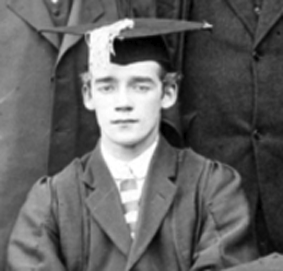Fact file:
Matriculated: 1908
Born: 27 November 1889
Died: 16 October 1918
Regiment: Indian Army Reserve of Officers, attached to 49th Regiment of Bengalis
Grave/Memorial: Karachi Cemetery: A/E.B.10
Family background
b. 27 November 1889, in Prestbury, Gloucestershire, as the eldest son of Augustus Gisborne Babington (1851–1900), and Merriall Lucy Babington (neé Paton) (b. c.1851 in Ontario, Canada, d. 1926) (m. 1884); at the time of the 1891 Census the family were visiting in Bath but, from 1888 until at least 1897 Augustus was on the Electoral register of Gloucestershire living at The Priory, Prestbury, near Cheltenham; at the time of 1901 Census Merriall and her daughter were living at Redlands, Parkstone, Dorset (one servant).
Parents and antecedents
The Babington family is an old one, probably originating in Northumberland. The branch to which Thomas Zachary Dodson belonged was descended from Humfrey Babington (d. 1544) of Rothley Temple. Rothley Preceptory (now known as Rothley Temple) was established by the Knights Templar. When their property was seized by the crown in 1308 it was passed on to the Knights Hospitaller, who owned it until its dissolution in 1540; Humfrey Babington then became Lord of the Manor of Rothley. The Babingtons retained the chapel and some of the Preceptory buildings and incorporated them into the house they built. Rothley Temple remained the home of the Babington family until Babington’s grandfather sold it to his brother-in-law in 1845. It is now a hotel.
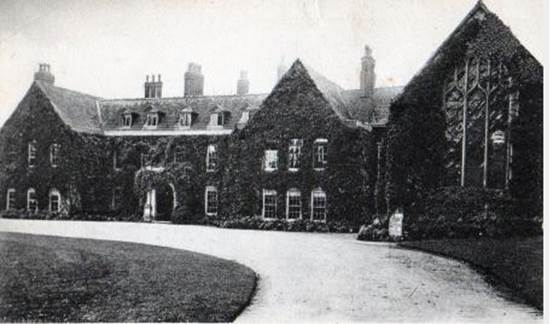
Rothley Temple (date unknown); the chapel is on the right
Augustus Gisborne Babington (1851–1900) was appointed to a supplementary clerkship in the Savings Bank Department of the Post Office in 1869, and remained in employment there until his death. He reorganized the postal services in Bermuda in 1899–1900, but died off Gravesend on the return journey (22 February 1900). He was the Honorary Secretary (1874–77) of the Society for the Encouragement of the Fine Arts, which had been founded in 1858 with a view to promoting the fine arts among all classes of the community. Unusually for the time, women could be elected members. In 1877 he gave a lecture to the society on ‘Some of the Causes of Greek Art Excellence’. He also took part in amateur dramatics. He was a JP for Gloucestershire.
Babington’s grandfather Thomas Gisborne Babington (1788–1871) went into partnership with his uncle, Zachary Macaulay (1768–1838) (father of Thomas Babington Macaulay [1800–1859], 1st Baron Macaulay, the historian), as an Africa merchant in London, c.1816–29. He was a JP for Leicestershire. He was also a member of the Clapham Sect of political and religious reformers, which included William Wilberforce (1759–1833), MP. Members of the Clapham Sect were united not only in their ideas but also in strong family ties, but it is not appropriate here to discuss all the notable families to which Babington was related by marriage.
Babington’s great-grandfather was Thomas Babington (1758–1837), High Sheriff of Leicestershire (1780–81) and MP for Leicester (1800–1818). He was also a member of the Clapham Sect and was greatly influenced by his mother, Lydia (neé Cardale; 1726–91), who was a member of the London Committee for the Abolition of the Slave Trade, and by his lifelong association with his Cambridge contemporaries Thomas Gisborne (1758–1846) and William Wilberforce. In Parliament he fought together with Wilberforce for the abolition of the slave trade (the British transatlantic trade was abolished in 1807) and for the abolition of slavery, which occurred in the British Empire in 1833, some years before his death.
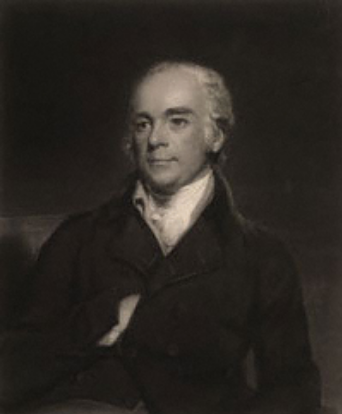
Thomas Babington (1758–1837) by Charles E. Wagstaff (after John Hoppner)
(© Copyright The British Museum)
Thomas Zachary Dodson’s mother was the daughter of the Venerable Dr Henry Patton (1804–74), Archdeacon of Ontario (Canada), and his second wife Georgiana Dodson (b. 1822 in Ontario). Henry Patton, although born in Chelmsford, moved to Canada in 1816 when his father, Major Andrew Patton (1771–1838), brought his family to Canada after receiving an honourable discharge from his regiment (45th Regiment of foot) and selling his commission. So Henry Patton received his secondary and tertiary education in Canada.
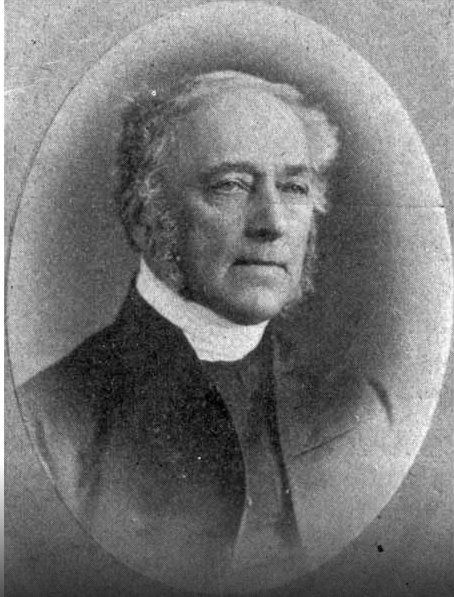
The Venerable Dr Henry Patton (1804–74)
(Source: North Greville Times, 19 July 2017)
Siblings and their families
Brother of:
(1) Gervaise Guy Macaulay (1892 – died in infancy)
(2) Merriall Frances (b. 1887, d. 1955 in Italy); later Boselli after her marriage (1910) to Giorgio Emanuele Carlo Boselli (1877–1945); three children. After her marriage Merriall went to live in Campoferro, Voghera, Italy.
Giorgio Emanuele Carlo Boselli was the son of Lieutenant-General Francesco Boselli of Campoferro, Voghera, and Maria dei Conti Datelli della Torre.
Merriall and Giorgio’s eldest child Merriall C.G.M. Boselli (b. 1914) was, in 1971, Tutor in Charge of an advanced course for social workers in the Enfield College of Technology and had worked as a family caseworker and psychiatric social worker in England and the USA.
Their elder son Emanuele Luigi Babington Boselli (1915–44) was a Second Lieutenant in the Royal Italian Army Parachute Corps. After the armistice with Italy in 1943 he served with the Allies, and British Intelligence dropped him by parachute to join the partisans behind German lines. He was captured by the Germans and sent to Dachau, arriving on 9 October 1944. He was then sent to a satellite camp at Überlingen on 28 October and returned to Dachau on 19 November, where he was shot at 10.00 the following day.
Their younger son Giorgio Francesco Paolo Babington Boselli (1925–84) read history at Wadham College, Oxford. In 1951 he married Finola Mary Murtough (1921–93) (one child) and became a British National in 1954 as George Francis Paul Boselli Babington. At the time of his naturalization he was an “Exporter”.
Education
In 1864 G.W.S. Alington’s maternal grandmother, Gertrude Isobel Frances MacLaren (1833–96), a classical scholar, established Summer Fields Preparatory School on a 70-acre site in North Oxford, where it still exists today (cf. G.H. Alington, A.J.B. Hudson, A.M.F.W. Porter, E.G.R. Romanes). Babington attended Summer Fields from c.1896 to 1903 and Radley College from 1903 to 1908, where he won the Worsley Prize; he also played in the College cricket XI (1907–08), and football XI (1905–07), of which he was Captain.
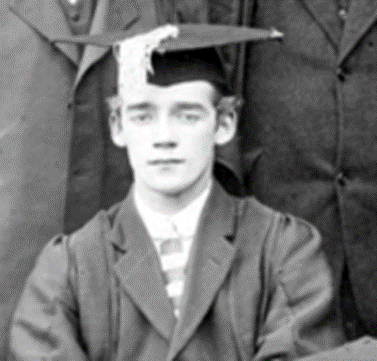
Thomas Zachary Dodson Babington, BA (excerpt from a group photograph of the Prefects at Radley College, 1908)
(Photo courtesy of Radley College)
Babington matriculated at Magdalen as a Commoner on 14 October 1908, having been exempted from Responsions because he possessed an Oxford and Cambridge Certificate. His Tutors were unimpressed with him right from the start, describing him as a “Good little boy – weak scholar”, “not a great scholar”, “ineffectual – not much good”, and “Interested in many things” which, judging from other, similar cases, was a negative rather than a positive comment. By June 1909 one senses that Babington, being “Intelligent”, was beginning to react against such an unhelpful regime: he fell ill, he was sent down by the College for his “weakness”, even though he had done well in collections (internal College examinations at the start of term), and in October 1909 he was sent down by the Proctors for rowdiness. Nevertheless, he clearly used his absence from College as an opportunity to do some work, for when he took the First Public Examination in October 1909 and Hilary Term 1910, he was awarded a 2nd in Classical Moderations, somewhat to the surprise of his Tutors who would have been “content with a 3rd”. In June 1910 he changed to the Honours course in English, “made a good start” as the “subject suits him”, and in Trinity Term 1912 he was awarded a 2nd in English. He took his BA on 10 October 1912.

Babington’s academic record (1908–10), compiled by H.W. Greene et al. (Magdalen College Archives: F29/1/MS5/5: Notebook containing comments by H.W. Greene et al. on student progress, 1895–1911, p. 94)
During his time at Oxford, Babington played Seniors Association Football; after leaving Oxford, he joined the staff of the English Dictionary (1912) and became the Professor of English Literature at Government College, Rangoon, Burma (now Myanmar) (1912/1913–14).
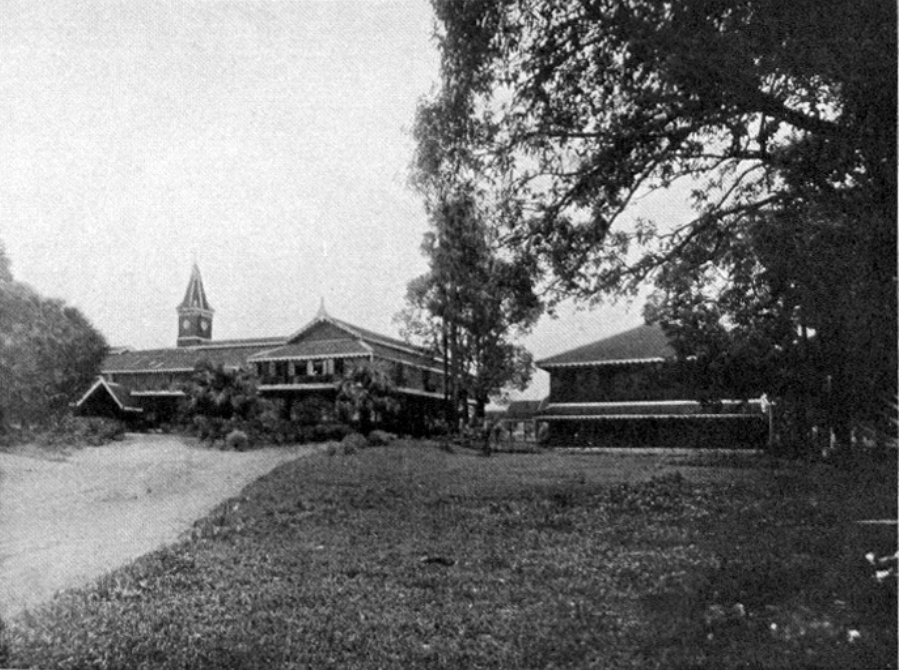
Government College, Rangoon, early 1900s
(Source: Wikipedia)
Military and war service
According to the India Army List, Babington was attached to the 108 Infantry Regiment on 24 March 1915 and commissioned as Second Lieutenant on the 25 March. The Regiment had been formed in 1903 from the 8th Bombay Infantry. At the outbreak of war it was stationed in Bangalore, and had been inspected 1 March 1914 by Brigadier Richard Wapshare (1860–1932), who reported that the regiment’s general efficiency was very satisfactory and that it was fit for active service. In the first year of the war it was involved in internal security duties and then in the summer of 1915 the regiment was posted for garrison duties on Perim Island off Aden (an important coaling station). There are no existing war diaries for this period. However, at some time the Regiment served in Muscat, since the War Diary (National Archives WO 95/5029/2) reports that it sailed from Muscat on the H.T. Franz Ferdinand on 1 June 1917 (the first entry in the diary), arriving in Basra on 2 June, where it became part of the Euphrates Defence and Communications System. On 7 June Lieutenant T.Z.D. Babington (gazetted Lieutenant 24 March 1916) was noted as being one of the officers of the Regiment at Magil Camp in Basra. On 22 June he was appointed adjutant.
On 14 August 1917 Babington was appointed Temporary Adjutant. On 31 August he was put on the sick list and transferred to the British General Hospital and on 6 September he reported back for light duties from the Beit Nama Hospital.
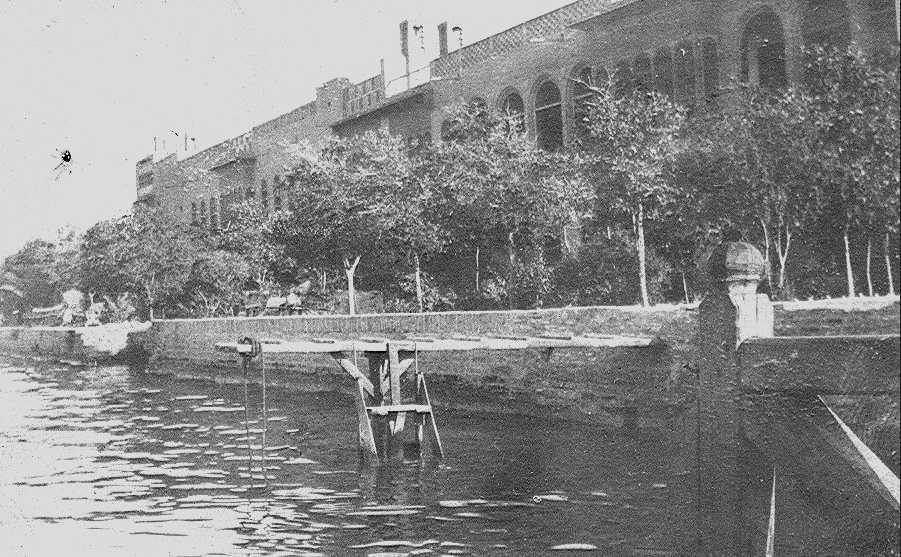
Beit Nama Officers’ Hospital, Basra
(Photograph by Captain Charles Henry Weaver © Dr Gerard Bulger)
On 4 March 1918, after a two-day march to Shaiba Fort, the Regiment took over responsibility for the Euphrates front from Makina to Nesiriyeh from the 1st Devons. Shaiba Fort (some 40 miles north-west of Basra) had been attacked by the Ottoman troops reinforced by Arab and Kurd irregulars on 12 April 1915, but after a two-day battle the British and Indian troops had fought off the Ottoman attack. This was the last time Basra was threatened during the war.
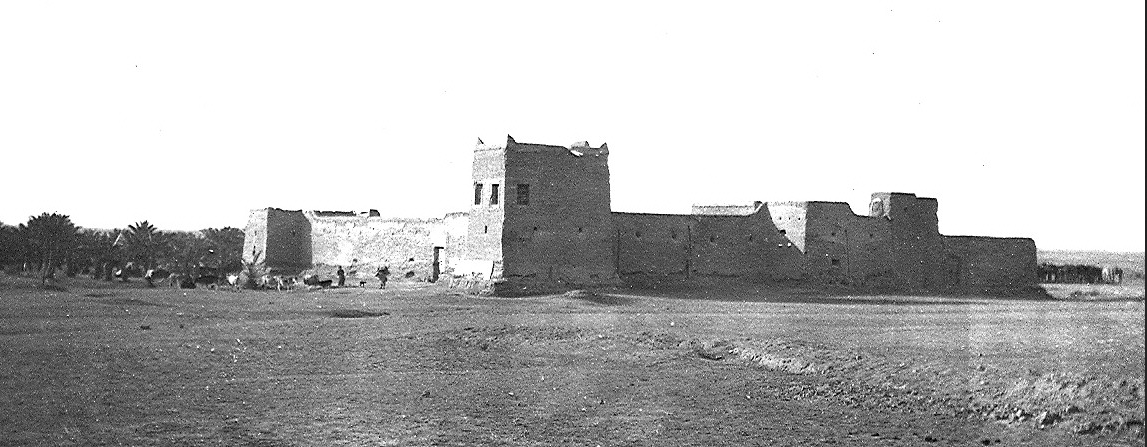
Shaiba Fort
(Photograph by Captain Charles Henry Weaver © Dr Gerard Bulger)
On 30 April 1918, although no previous note had been made of it in the War Diary, Babington was listed as acting Captain commanding ‘D’ Company. On 6 May “Lt/A/Capt T Z D Babington was evacuated to BGH” (British General Hospital). The War Diary is not very informative, consisting largely of the numbers of soldiers evacuated either to hospital or to India and the number of replacements. Presumably there was little to do, which is highlighted by one of the longer entries in the diary, for 4 June: “4 IORs [Indian Other Ranks] invalided to India on 24-5-18. One rifle lost in the Euphrates river by plank breaking and man falling overboard. Man saved.” Among other illnesses leading to the evacuation of men, heat stroke, sandfly fever and malaria are mentioned. The last led to the Commanding Officer ordering the men to wear “pantaloons” when on guard at night “to prevent the knees being bitten by sandflies and mosquitoes” and so helping to reduce sickness from sandfly fever and malaria. The regiment returned from Shaiba Fort to Magil Camp in Basra on 28 September.
On 12 November the War Diary contains the following: “I regret to note that Lt T Z D Babington late 108 Infy died on 17 Oct at Karachi. Lt Babington was a very smart Officer and his death is regretted by all ranks in the 108th Infy where he was generally popular.” Presumably some time after 6 May when he was hospitalized he was evacuated to India, where he died of pneumonia on 16 October. According to the Commonwealth War Graves Commission Babington was attached to the 49th Bengalis, but there is no mention of him in the unit’s war diaries between July 1917 and his death in October 1918. A possible explanation for this anomaly is that on repatriation to India Babington had to belong to a unit for administrative purposes. As the Depot of the 49th Bengalis was in Karachi he was attached to this unit. However it is clear that he spent nearly all his military career with the 108th Regiment.
On 16 November 1918 the war diary sums up the frustration of the Regiment and gives some indication of what it did and did not do while Babington was serving:
The 108 Infantry has not had a chance of distinguishing itself once during the whole 4 years of the Great War […] all ranks feel greatly the neglect. The 108th Infantry has been in all the bad stations from a health and training point of view in Bombay – Perim – Kameran [an island strategically located at the southern end of the Red Sea and occupied by the British on 9 June 1915] and Muskat and done all the most distasteful work in The Army.
Signed A(alan) R(ichard) L(eopold) King-Mason [1979–1952] Lt Col 108 Infantry
Babington died of pneumonia – the effect of active service in Mesopotamia – on 16 October 1918, aged 28. He is buried in Karachi Cemetery, Grave A/E.B.10, and commemorated on Face 23, Delhi Memorial (India Gate). He left £1,622 2s 4d.
Bibliography
For the books and archives referred to here in short form, refer to the Slow Dusk Bibliography and Archival Sources.
Printed sources
[Anon.], ‘T. Z. D. Babington’ [brief obituary], The Radleian, no. 424 (18 December 1918), p. 165.
Peter C. McIntosh, ‘MacLaren, Archibald (1819?–1884)’, Oxford Dictionary of National Biography, 35 (2004), p. 722.
Archival sources:
MCA: F29/1/MS5/5 (Notebook containing comments by H.W. Greene et al. on student progress [1895–1911]), p. 94.
OUA: UR 2/1/65.
WO95/5020/5 (War Diary of 49th Bengal Infantry Mesopotamia [July 1917–April 1918]).
WO95/5247/5 (War Diary of 49th Bengal Infantry Mesopotamia [May 1918–April 1920].
WO95/5029/2 (War Diary of 108th Infantry [June 1917–December 1918]).
On-line sources:
Nigel Aston, ‘Babington, Thomas (1758–1837)’, Oxford Dictionary of National Biography (2005); this version (May 2015) on-line: http://ezproxy-prd.bodleian.ox.ac.uk:2167/view/article/75363 (accessed 6 Oct 2017).
Nick Kingsley, ‘Landed families of Britain and Ireland’: http://landedfamilies.blogspot.co.uk/2017/07/302-babington-of-cossington-and-rothley.html (accessed 27 February 2018).
Access Genealogy, ‘Biography of Rev. Henry Patton’: https://www.accessgenealogy.com/canada/biography-of-rev-henry-patton.htm (accessed 27 February 2018).
